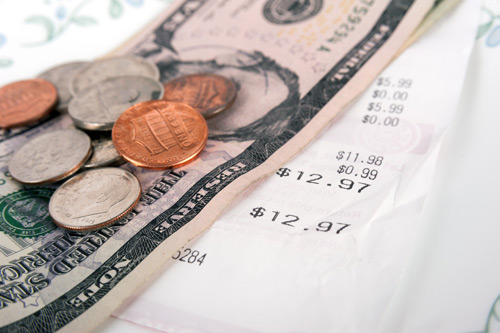The Story thus far

At the beginning of 2015, a restaurant named Bar Marco in Pittsburgh, PA made national news headlines when owners announced that they would get rid tipping altogether and pay full time employees a base salary starting at $35,000 a year. While the idea of an independent restaurant cutting tipping isn’t anything new, establishing a relatively high base salary for all employees at a restaurant is.
The experiment seemingly was a tremendous success. Within two months, Bar Marco’s profits tripled. Though it is debatable whether or not that initial spike was from the extra publicity, nearly a year later the restaurant and sister establishments (which have since adopted the same policy) seem to be faring well.
Despite the success of Bar Marco, this story, along with fast food workers demanding $15/hour, sparked a tremendous debate throughout the foodservice community regarding tips and wages. The restaurant industry is starkly divided on this issue, but the idea of doing away with tips seems to be gaining traction.
Enter Danny Meyer
In October of 2015, Danny Meyer, CEO of New York City’s Union Square Hospitality Group and founder of Shake Shack stepped right into the middle of this debate. After having a banner year, earning nearly $1.6 billion in Shake Shack’s Initial Public Offering, Danny and the USH Group made some internal changes. Meyer announced that all of the restaurants in the USH family would do away with tipping, and the foodservice industry erupted.
A heavyweight in the industry, Meyer’s influence helped broadcast his stance on tipping and wages across the country. This controversial move added gas to an already hot burning debate. Meyer is an internationally known restaurateur, and this move has given the “no tipping” movement instant credibility and a strong ally.
Insights from our Industry Experts
Restaurant managers haven’t been mincing words when discussing the debate on tipping. We spoke to some of our industry experts (all former restaurant managers or owners) and asked them to weigh in on this ongoing debate. Here’s what they said:
“This policy not only benefits servers but was also designed to bridge the gap between the front and back of the house's wages. The problem here is that Americans, both customers and employees, are used to the current system. [There is] proof that tipping is not necessary for good service: virtually all of Europe does not tip. Motivation for good service falls on the management. If an employee is not performing, motivate first, and if that doesn't work replace them.”
– Bernie
“Servers are salespeople. Sales People get paid commission. Tips are like commission. The more the server sells the higher their tip. The better the service they give the higher the tip. The back of the house is a different issue. Kitchen workers should be paid a better wage. That is on the restaurant owner.”
- Hap
“I believe that it will lead to the decline of customer service. Servers are rewarded for their superior service, and if you remove that element you will be removing the incentive to perform.”
- Rudy
“I suppose it creates some certainty for FoH staff, but it could also represent an earning cap. I've seen FoH leave a shift with more total earnings than the BoH crew many times.”
- Anthony
“Money motivates!! Any Bartender or waiter that would work for strictly an hourly wage will not be your best employee.”
- Peter
“With the current gratuity system I have run into servers that are horrible. Can you imagine what service would be like if the incentive to give good service was gone? There is a difference between earnings and entitlements. A servicer earns the gratuity base on the service given. This would lead to the next question. Would the public eat out less frequently if service declined? That would affect my decision.”
- Larry
“I am absolutely 100% on board with it. It doesn’t make sense that a server who works four 5-6 hour shifts can bring in more than my cooks that work 40+ hours. And, frankly, if a server isn’t going to provide good service because they aren’t getting tipped I don’t want them working for me. I expect good service ALL the time, not just when it’s convenient for my employees’ wallets.”
- Sean
Problems, possible solutions, and the evolution of the industry
With major cities, and even smaller areas, having problems staffing the back-of-house, raising BoH wages is a primary catalyst for these changes. Chefs and cooks are being priced out of major markets due to low wages and high rents amidst a booming market (as explained in this article from the New York Times), and no doubt Danny Meyer’s USH Group is trying to retain talent like many other hospitality groups. But, as the old adage goes, “Necessity is the mother of invention.”
While a number of prominent restaurateurs are following Danny Meyer’s lead (such as David Chang’s Momofoku, and even chain restaurant Joe’s Crab Shack), some others restaurants are getting inventive. Los Angeles restaurateur Phillip Lee Franklin has opened a new restaurant that does not employ servers. The humble establishment borrows from traditional Japanese sushi houses, where patrons order from and are served by the chefs preparing their food.
Other restaurants, such as Chef Kevin Gillespie’s Gunshow in Atlanta, find a happy middle ground. At Gunshow, servers tend to customer’s immediate needs, while chefs present the dishes they have crafted and a bartender makes cocktails on a mobile cart that wheels from table to table.
With such industry growth over the past several years, American foodservice is undergoing some drastic changes and potential growing pains. With an influx of competition from both traditional brick and mortar establishments and alternative options like food trucks and grab-n-go shops, it will be interesting to see how the standard tipping policies we’ve grown used to will evolve.
Where do you stand? Use #Tip4Service to let us know what you think!

